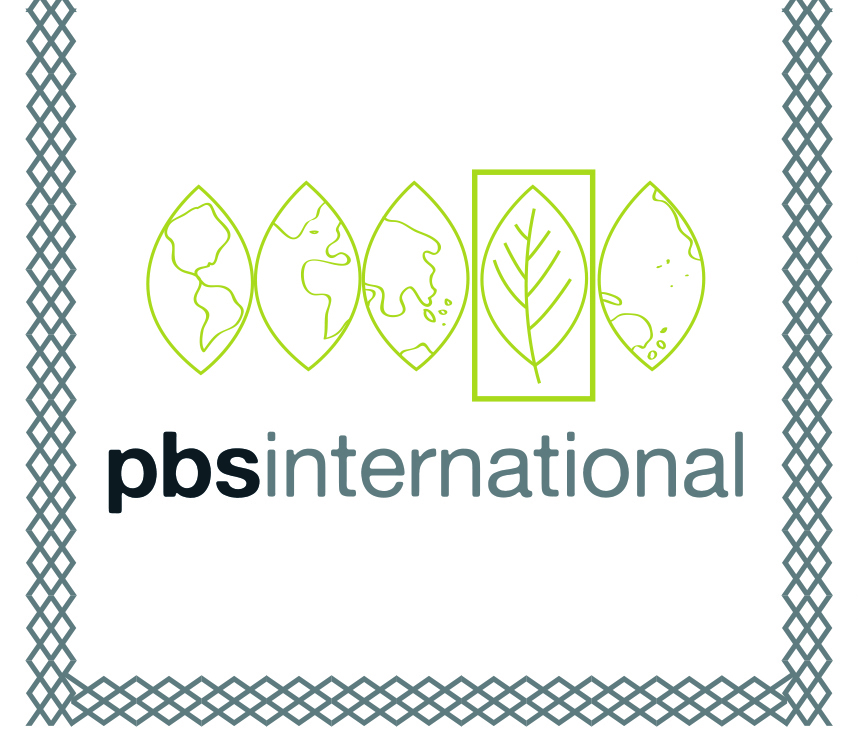 Dr Celestine Ikuenobe shares insights from his lifetime of expertise in palm oil, discussing how breeding programs are future-proofing this versatile and productive crop, promoting higher yields, drought tolerance, and resistance to disease.
Dr Celestine Ikuenobe shares insights from his lifetime of expertise in palm oil, discussing how breeding programs are future-proofing this versatile and productive crop, promoting higher yields, drought tolerance, and resistance to disease.
Dr Ikuenobe joined NIFOR (the Nigerian Institute for Oil Palm Research) in 1986 after completing his PhD. His 40-year career took him from being a Research Officer to Director of Research and then onto NIFOR’s Executive Director from 2018 -2023. As an ecology and fertility management expert and an authority on all areas of oil palm research, he has also provided consultancy to the Nigerian government, international NGOs including UNIDO, and industry stakeholders.
Though Dr. Ikuenobe has now retired from NIFOR, he continues to lecture and provide consultancy services. He generously shared some time with us to discuss oil palm breeding and the role of pollination control in creating hybrids. As a long-standing customer of PBS International, Dr Ikuenobe has witnessed the evolution of our pollination control products over the years alongside progress in the oil palm industry.
Better breeding, Better Livelihoods
Oil palm, Elaeis guineensis, is an exceptionally productive crop used in a vast range of applications. It has been an important source of nutrition in West Africa for generations, providing food security and forming the backbone of many traditional recipes, as well as being used to make soap and fuel. Nigeria’s oil palm provides social and economic sustainability creating jobs and improving livelihoods for small-scale farmers.
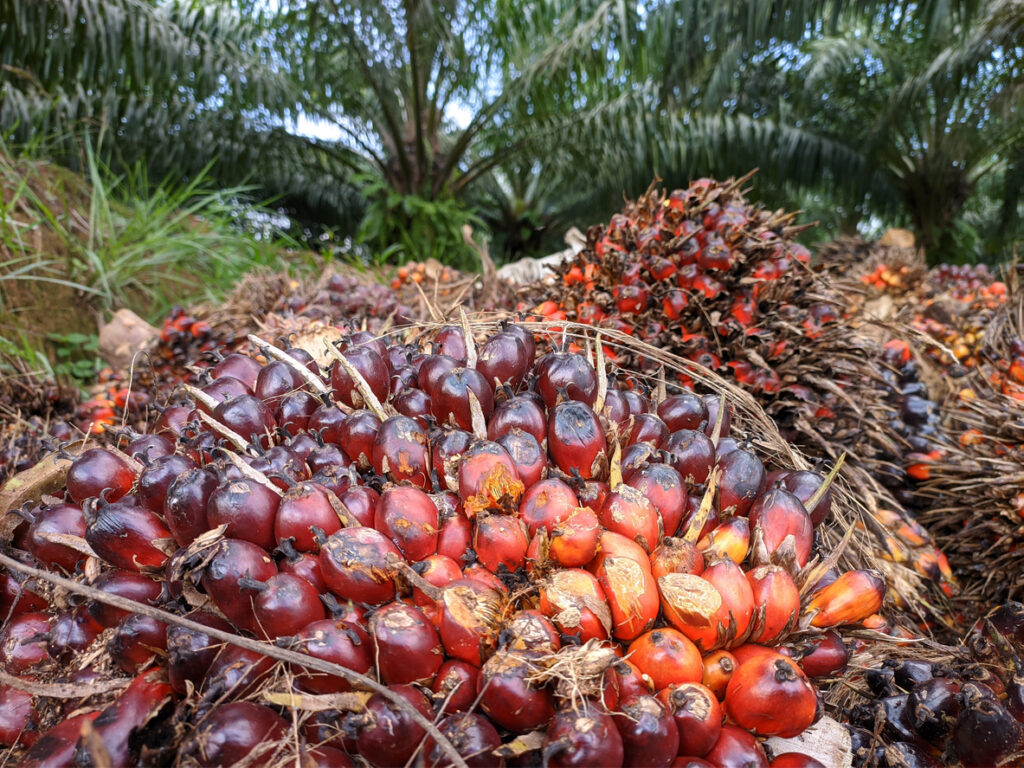
“Oil palm products are used daily in cooking, in bread, pasta, confectionery, and in face creams and body creams. It’s an important local crop in West Africa and many other parts of the continent,” says Dr Ikuenobe. “It is the highest vegetable oil yielding crop – yielding five times as much as any other. So, from one hectare, you can get as much as five or six tons of oil.”
Once planted, an oil palm plantation can produce high-yielding fruits for over 25 years and therefore has less impact on soil ecology than other oil crops that require annual land preparation and planting.
“This allows for more biodiversity than mono-crops like maize corn and sunflower.’’ Dr Ikuenobe also highlights how plantations can restore and re-green formerly degraded forest lands. “Breeding produces drought tolerant materials that can be planted in areas that would not normally be forested. For instance, in Nigeria, work is helping to introduce oil palm where forests can’t grow, so now something is growing there and providing ground cover.”
The improvement of oil palm (Elaeis guineensis) by selection and breeding started in the Democratic Republic of Congo (DRC) in the 1920s and in 1939 NIFOR was established with the sole aim of genetic improvement and developing management practices of Oil Palm. The centre is world-renowned for its research. NIFOR is now mandated by the Nigerian Government to conduct research into the production and products of oil palm, coconut, date palm, Shea, and Raphia palms and transfer its research findings to farmers.
Breeding high-quality seeds is even more important given the long life span of the oil palms, so planting poor-quality seeds has long-term ramifications for farmers. Good-quality seeds also help make sure every inch given over to oil palm is as productive as possible, adding value and using space conservatively so that less wild land needs to be cultivated.
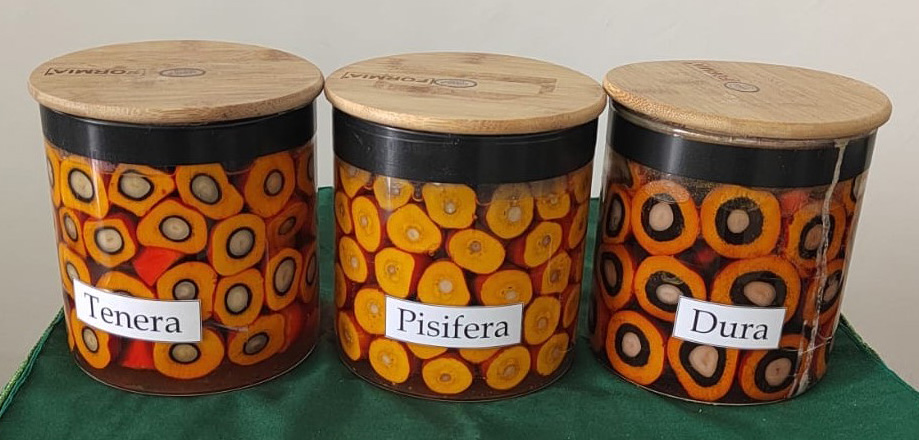
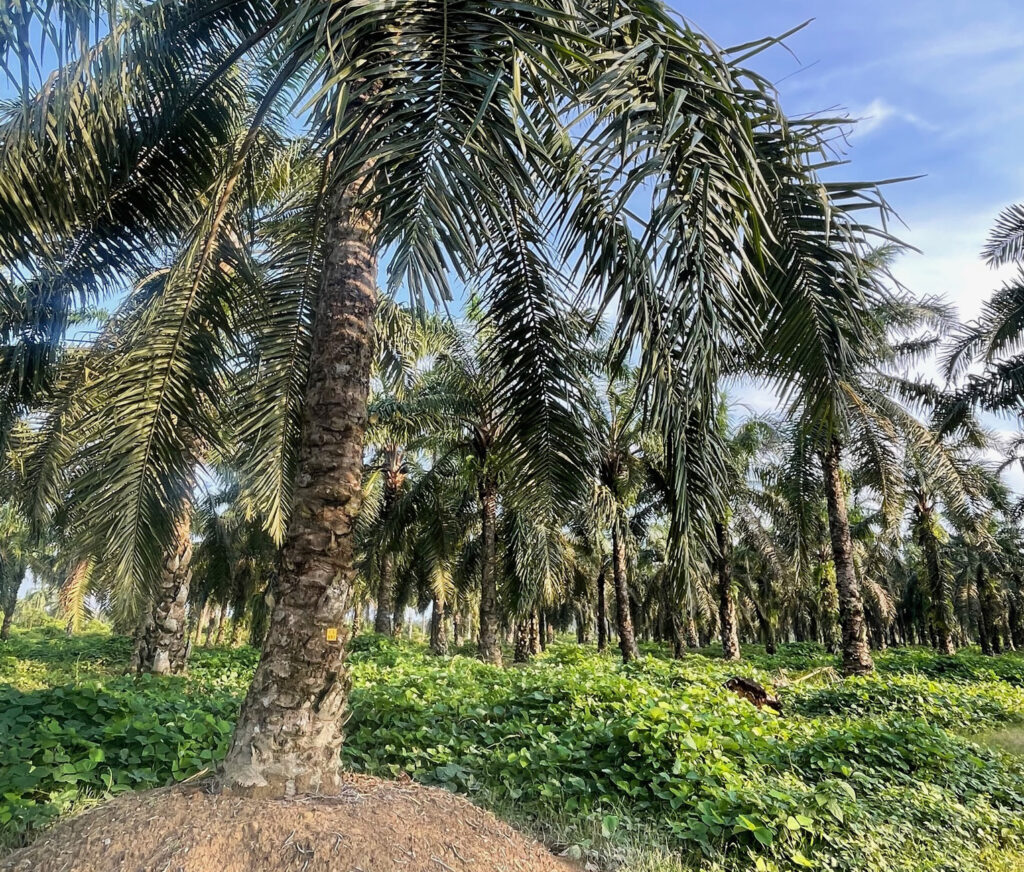
Origins and the Optimal Seed
Research on the domestication and genetic improvement of oil palm is relatively recent in comparison to other commercial crops. The long lifecycle of the Oil Palm, in comparison to other oil crops such as maize or rapeseed, means that progress in research and development is often slower. Therefore, whilst oil palm is native to West and Central Africa, the region’s wild-growing palms aren’t capable of high-volume production and high oil yield – not without further help from skilled breeders.
An oil palm fruit has three layers – oil-producing flesh, the kernel, plus a hard shell. Over many years, a network of worldwide institutions and their researchers, including those at NIFOR, have identified the tenera variety – an optimal balance between the proportions of the thick-shelled dura (mother plant) with a shell-less pisifera (father plant) that can produce up to 30% more oil than the dura.
“The tenera variety was initially discovered in the Congo region,” says Dr Ikuenobe. “But the hybridization was later perfected at NIFOR during the 1950s and 1960s. NIFOR could do that because the two wild varieties that created tenera were locally available for study.”
NIFOR’s work today is about maximising the unique benefits of oil palm, breeding in traits like drought tolerance, resistance to disease, or better oil extraction. Recent work involves reducing the palms’ height, making harvesting easier.
Pollination control plays a big part in refining the hybrids. Using pollination bags to isolate flowers keeps unwanted pollination from occurring, allowing researchers to choose precisely which plant fertilizes which.
“For seed production, we want to be sure that the pollen that gets to the mother tree comes from the pisifera that we have selected and is not just a random pollination. We must isolate the flower just as it’s becoming receptive,” says Dr Ikuenobe. “You need to be able to cross specific genes, specific crops, or specific palms that have the characteristics you want.”
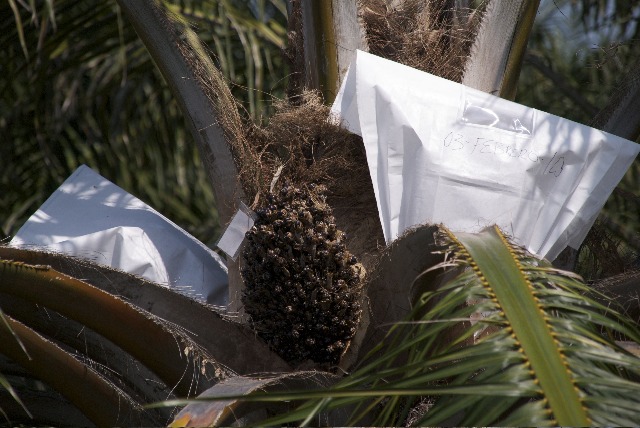
Why PBS International for Pollination Control
NIFOR has worked with PBS International for over 20 years and has continued to choose us as their pollination control provider of choice. What, in Dr Ikuenobe’s opinion, makes a good pollination control bag?
“Of course, it needs to make sure that pollen from outside doesn’t get in. And it needs to be resistant to weather throughout the process. Breathability is also important,” he says.
“PBS International is efficient in the delivery of products and has good product stewardship. It’s a niche product and they are known as the main players in the market. By purchasing from PBS International there is good quality assurance along the supply chain.”
Looking ahead
Dr Ikuenobe believes that although other economically important crops are being produced in the West and Central African region, which boasts avocado, cashew, cocoa, and coffee-growing industries, oil palm is key not only for regional smallholders but also as an export crop. “Most of the oil that’s traded around the world is palm oil. In terms of crops with high industrial value, oil palm still stands out,” he says. “As long as we need to eat, we will need oil palm.”
Learn more about PBS International’s products for oil palm.
